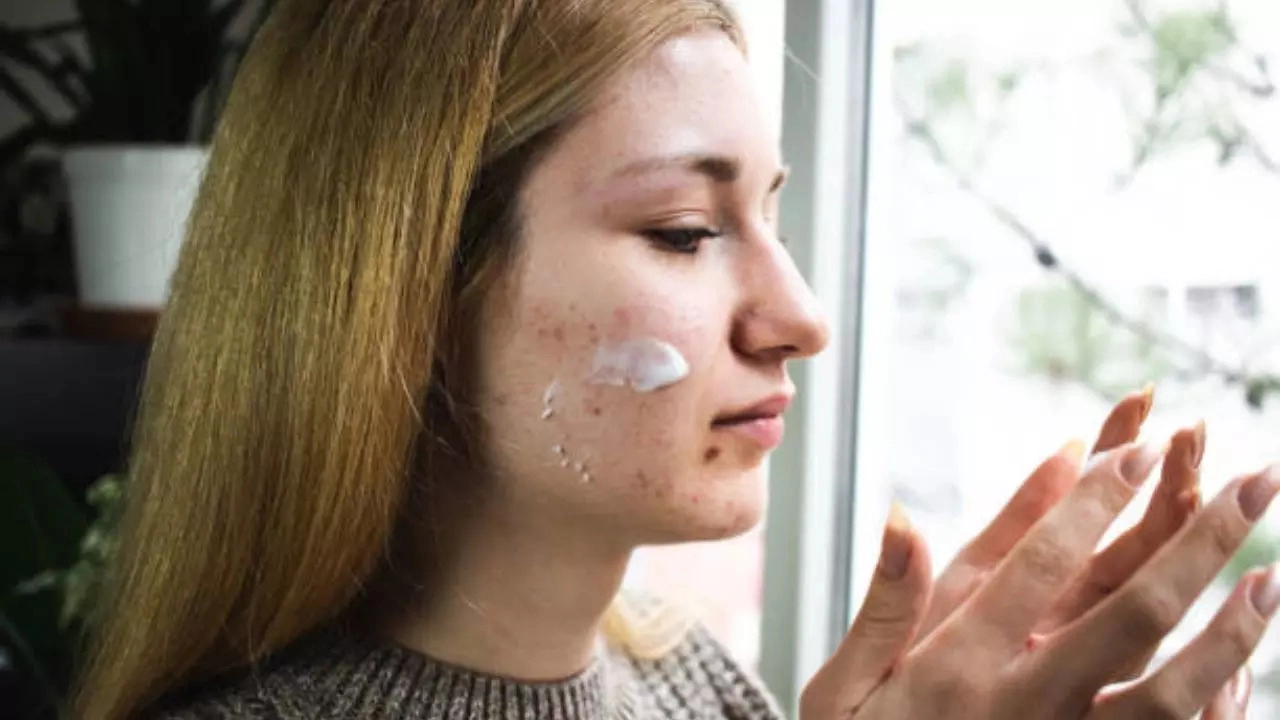Common Acne Drug Can Become Carcinogenic at Room Temperature, Say Doctors; Know How
Oct 11, 2024
News

Common acne creams that have benzoyl peroxide which contains high levels of benzene while sitting on a store shelf or in a medicine cabinet
Acne is a common skin problem faced by millions across the world today. According to doctors, it happens when hair follicles under the skin become clogged due to sebum or dirt particles. And the best way, many say, to treat them is creams that help them become dry. However, a new study has warned that these widely used creams become contaminated with a known carcinogen even if kept at room temperature.
According to researchers from Yale University School of Medicine, common acne creams that have benzoyl peroxide, or BPO, can wind up containing high levels of benzene while sitting on a store shelf or in a medicine cabinet – leading to cancer.
Researchers tested at least 111 known brands that contained benzoyl peroxide – including products from Clearasil, Clean and Clear, Neutrogena, Proactiv, Up and Up, and store brand equivalents.
How do acne creams become carcinogenic?
According to the study, published in The Journal of Investigative Dermatology, Benzoyl peroxide degrades into the carcinogen benzene over time when stored at room temperature, at elevated temperatures, and when exposed to the ultraviolet rays of sunlight.
This is the first time that benzoyl peroxide products have been shown to degrade into benzene at normal temperatures. “Our research demonstrates that BPO products can generate benzene at typical room and store shelf temperatures, while cold storage significantly reduces this formation,” said Dr. Christopher Bunick, lead researcher and associate professor of dermatology with the Yale University School of Medicine in Connecticut.
According to the Environmental Protection Agency, benzene is classified as a known human carcinogen, as it specifically increases the risk of leukemia - a type of cancer that affects the blood and bone marrow, causing the production of abnormal white blood cells. Experts say benzoyl peroxide works as an antibacterial agent and is found in over-the-counter remedies and prescription creams for acne and rosacea.
“The 111 BPO drug products tested from major U.S. retailers appear to be substantially contaminated with benzene when tested shortly after being acquired off the shelf,” researchers wrote.
According to the study, nearly 35 per cent of the products that were tested had benzene concentrations above the US Food and Drug Administration’s limit of two parts per million for medications. However, there are no safe levels of exposure to benzene, researchers noted. In the past also, the FDA recalled certain hand sanitizers and aerosol drug products due to benzene contamination. If benzene is detected above the allowable limit, manufacturers must contact the FDA to discuss a voluntary recall. The researchers’ testing revealed benzene concentrations in the products as high as 35.3 parts per million.
Cooler temperatures can slow benzoyl peroxide’s degradation
According to the research, refrigerating the creams can slow benzoyl peroxide’s degradation into benzene. “These findings suggest a need to recommend refrigeration of BPO products throughout the supply chain -- from manufacturing to patient use-- to limit benzene exposure,” Bunick said in a journal news release.
“Until formulations are developed to prevent benzene formation, refrigeration may serve as a practical solution to minimize unnecessary exposure,” he added.
Get Latest News Live on Times Now along with Breaking News and Top Headlines from Health and around the world.



